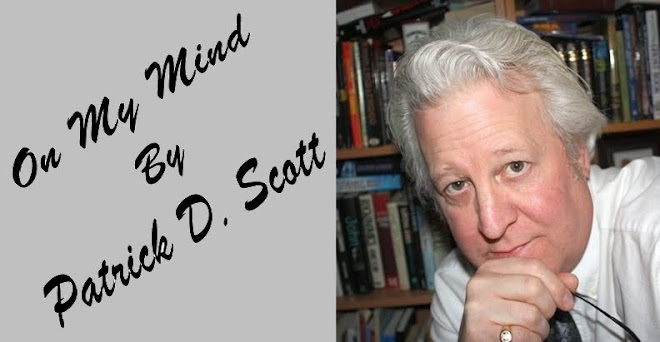Unbridled greed has been targeted as one of the main reason’s for the global economic situation we are in. Both Russian Prime Minister Vladimir Putin and Chinese Premier Wen Jiabo at the World Economic Forum in Davos, Switzerland recently blamed the United States pursuit of profit as the main reason for this economic downturn. That in itself is a simplistic response but there is some truth in that accusation. Over the past decade or so proponents and critics of Wall St. have quoted the fictional character Gordon Gecko as saying, “Greed is good” as some sort of mantra that this is the way things are meant to be. But what he actually said was “Greed, for the lack of a better word, is good.” (Italics are mine). An ocean of difference in my opinion. But was greed what drove the economic engine to grind to a halt? It certainly was a factor, the pursuit of money at all costs is an intoxicating beverage. Even if you take the relative penny ante of most investors, the scent of earning more and more money can cloud the better judgment of all involved and that includes investors who wanted a higher and higher rate of return on their investment without considering the corresponding risk.
There is an element of moral responsibility when dealing in the financial industry whether this is balancing the needs of the client to the needs of generating revenue right down to having a sense of “doing the right thing”. An example of moral responsibility gone AWOL could be Richard Arens, a mercantile trader for a one man brokerage company named ABS on the New York Mercantile Exchange. This was the man who everyone ought to hate. On January 2 2008 it was he who was alleged to have been the first to make a trade for a barrel of oil which broke the $100.00 barrier. He bought the minimum 1,000 barrels at a cost of .47 more per barrel than what was currently being traded on the floor. He did end up the day with a loss of 600.00 and made the trade so he would be able to tell his grandchildren that he was the first to pay 100.00 for a barrel of oil. Some kind of legacy. On the basis of accounting for every barrel of oil that was bought, sold, produced or shipped at that time, which numbers about 85, 000,000 barrels a day in the US, that single action increased the value of oil by more than $40,000,000. All this done with an investment of a margin deposit of $6,750. Within 7 months the price of crude rose to a high of 147.27 before settling back down. Was this the case of supply and demand which is the usual cornerstone of pricing or the result of targeted speculation? Considering how a simple $6,750 investment increased the value of oil by $40,000,000 is it too hard to imagine how prices would be affected by people with even deeper pockets?
It is difficult to lay all our problems at the feet of speculators, however enticing it may be. There were other factors all coming together, all interrelated, all commingled on the same messy economic plate. Sub-prime mortgages are a place to start, but they were rather an offspring of some behind the bushes derivative shenanigans. Papers were packaged and repackaged so often and frequently that even their mothers wouldn’t recognize them. Hedge funds? What started out as an investment tool to “hedge” your bets against risk, soon became the depository of high risk/high yield investments. It is rumored that a group of hedge fund managers were the wizards behind the levers which pulled Bear Stearns down, a company that had 8 Billion dollars in cash reserves before rumors of liquidity problems began circulating through the industry. At this point it appeared that the world was not enough to feed the appetite of some traders, they started to eat their own.
This situation is unfortunately not easily solved either domestically or internationally. The markets have become global in nature and with the complex weave of papers flying around the world, it is difficult to unravel what this mess has become. Many companies are now blaming a “broken model of business” as a source of their woes. The auto sector is particularly fond of this expression. It is as though they were following a rule book as to how to operate a business and when the nature of the marketplace changed and went beyond the circumstances described in their business model, all hell broke loose. Forgive me for intimating this but someone who earns a few million dollars a year for their business acumen should be able to do more than follow a recipe.
The list of reasons for this situation are as endless as they are complicating, but the end result is the same, we are in a hell of a mess economically. The solutions are as varied and diametrically opposed as their ideologies. Whether to take a Conservative/Republican point of view that less government involvement the better or the Liberal/Democratic slant that governmental intervention is the be all and end all can be argued up and down until the pundits are blue in the face. But one thing is certain, one of them will win out over the other and history will show if it was the right choice.
Wednesday, March 11, 2009
Subscribe to:
Post Comments (Atom)



Hey - I posted a comment yesterday and it's not 'registered'. Are the Thought Police messing with me? Or do I not actually exist?
ReplyDeleteET
Hey - that one seemed to work....what I had originally said was that this seemed to be a good idea and a great outlet for you to do some internal roto-rootering for us all to see. And, as your thoughts are now out in the open for all to see, I figured it was high time to finally involve the police.
ReplyDelete